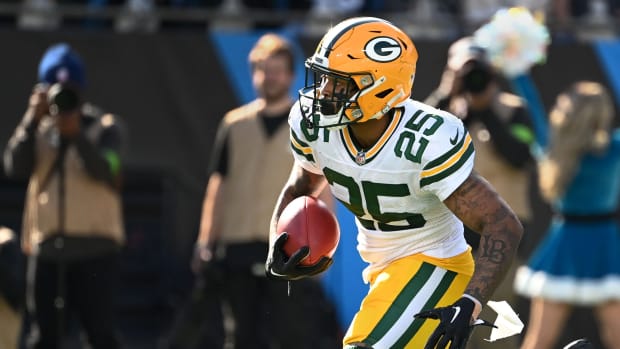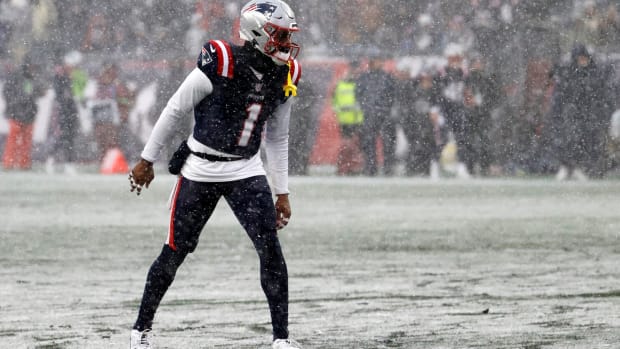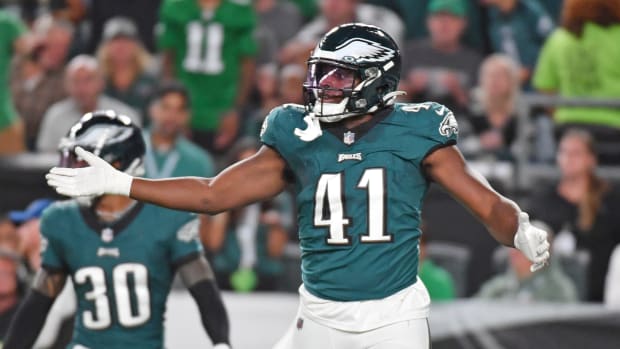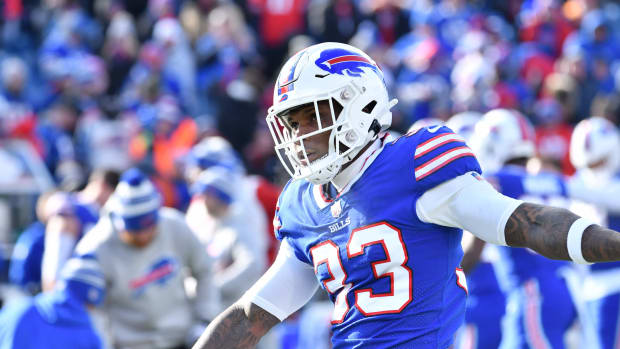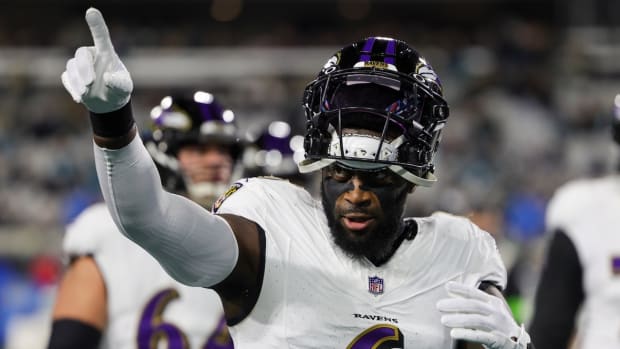Can St. Louis afford to lose the Rams?
It’s hard to say when this story begins. Maybe it was in 2012, when the city of Los Angeles approved AEG’s plan to build an NFL stadium in its downtown neighborhood. Or maybe it was in January 2014, when Rams owner Stan Kroenke purchased a sizeable piece of land in nearby Inglewood, Calif. The story was brewing before then, though, as St. Louis’s NFL team racked up losing season after losing season in an outmoded stadium.
And that’s where the real story is, at least for now: not in Hollywood, but in a struggling Midwestern city that’s fighting to hold onto its NFL team.
St. Louis has hardly had a banner year in the national news, but for all the attention rightly given to Ferguson, there have been hundreds of other tragedies in recent decades, less publicized but just as emblematic of a city with institutionalized problems. St. Louis knows years of economic stagnancy. It knows of racial tension and a flawed educational system, of a massive chasm between the haves and the have-nots.
• NFL Draft Positional Rankings: WRs | RBs | Tackles | Centers | Guards
And then there are the Rams. To mention an NFL team in the same breath as the aforementioned issues is downright facile. Sports don’t solve problems—far from it—but if St. Louis were to lose its NFL team, it would be just the latest blow to the city’s morale. The proposed $985 million stadium project that, if completed, should keep the Rams in St. Louis has already hit roadblocks, and its proponents have one clear message: St. Louis and its surrounding area need to be revitalized, and this project could do it.
Last Tuesday, news broke that St. Louis County—where much of the area’s wealth lies—will not be on the hook to put any funds toward the stadium project. And despite his stance that the project will go on undeterred, Missouri governor Jay Nixon has not said where the extra $6 million per year (the amount the county was going to pledge) will come from.
[daily_cut.nfl]The stadium is at an impasse, which got me thinking: As someone who grew up in St. Louis and loves the place like hell, should I be pleased my city is unwilling to foot half the bill for a billionaire’s new stadium, or should I be worried about the economic impact of the Rams jumping ship?
One person who isn’t concerned about the Rams’ potential departure is Glenn MacDonald, an economics professor at Washington University in St. Louis. MacDonald says that the future of St. Louis without the Rams looks similar to the city’s future with the Rams, and as far as cities’ economies go, professional sports teams don’t have much of an impact. Plus, he says, among the ranks of NFL teams, the Rams likely fall near the bottom of the heap in terms of bringing dollars to their city.
MacDonald cites the research of Mike Leeds, a sports economist at Temple University. Leeds studied the professional sports teams in Chicago, and he came to a somewhat shocking conclusion: “If every sports team … were to suddenly disappear,” Leeds said on KPCC radio in California, “the impact on the Chicago economy would be a fraction of one percent.”
Leeds posits that sports teams have no economic impact, which is an extreme view, but it’s one McDonald errs toward believing. To illustrate the truth in Leeds’s claim, MacDonald considers the issue from the opposite standpoint. Look at the NFL’s biggest markets, he says, places like New York and Houston. In those cities, the NFL’s economic impact might reach $20 million per game, a far cry from St. Louis, where per-game dollar totals are likely be closer to $3-5 million.
The SI 64: Sports Illustrated's top 64 prospects in the 2015 NFL draft
“Let’s exaggerate,” MacDonald says. “Let’s call it $40 [million per game in St. Louis]. As if maybe we’ve missed a bunch of stuff. Now, take [eight] games, and multiply it by $40 million. What you get is $320 million. Now, let’s compare that to the GDP of Missouri. What you’ll find is that huge number, which we just exaggerated as much as we possibly could, is less than one-fifth of one percent of GDP.”
MacDonald speaks dispassionately on the subject. The Rams provide a certain morale, he says, but with just shy of 200 full-time employees (that’s less than one percent of the more than 26,000 people on the books at the area’s largest employer, BJC HealthCare), if football were to bolt St. Louis, it wouldn’t take a toll on unemployment. And the hypothetical construction jobs that would no longer exist if the stadium project were to go kaput? MacDonald laughs: “That’s like saying Hurricane Katrina was terrific—for the construction industry in New Orleans.”
Others, though, look at the situation less clinically. Frank Viverito, president of the St. Louis Sports Commission, is a supporter of the stadium project, and he feels that losing the Rams would be a massive blow to St. Louis’s status and morale. He couches his support of the stadium project as an either-or scenario. “The alternative is that we don’t have a team, we don’t have a new stadium,” Viverito says. “To a lot of people, myself included, that’s not the preferable alternative.”
NFL rumors: Latest buzz around free agency, trades, 2015 NFL draft
“The region has well-documented issues and challenges in a lot of areas of life and economics and sociology,” he adds. “It’s a community that has to figure a lot of things out, and one of those things is how to make downtown stronger, better, more exciting to support more population. We have to move forward as a region on a lot of different fronts, and this type of development seems to fit into that bigger picture.”
Nothing about those statements is false. Ballpark Village, an entertainment complex next to Busch Stadium in downtown St. Louis that opened a year ago, has revitalized the area around the baseball stadium, and a new NFL stadium nearby on the Mississippi riverfront would do the same for a parcel of land that no one is currently visiting. The stadium, and the Rams staying, would help. Downtown St. Louis would be that much safer, that much more attractive, that much more of a draw to prospective residents. Maybe that’s a proposition that makes the project’s price tag worth swallowing, but to call it a solution to the city’s problems or a boost to its economy— well, that would be a stretch.
“I do think things like sports teams do play a role in trying to revitalize a city, but it isn’t by buying a sports team, you revitalize a city,” MacDonald says. “It’s by fixing all the things that cause a team not to want to be here, that revitalizes a city."
































